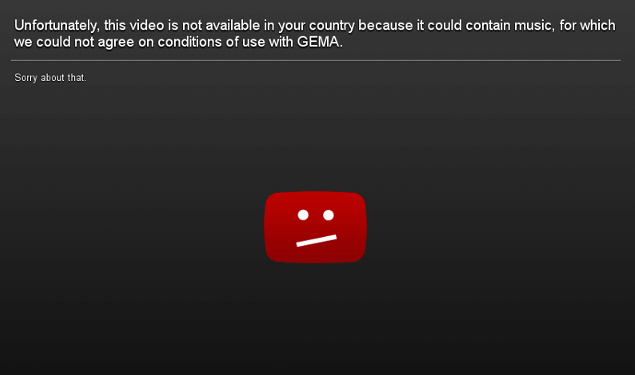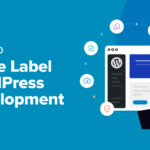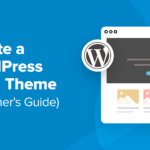Data breaches and other forms of cybercrime have been on the rise in recent years. It seems like hackers are continually coming up with new ways to access and sell personal information. With people spending so much time online, you may be thinking about online security more than ever.
If you’re concerned about your privacy, you might want to consider using a Virtual Private Network (VPN). In addition to security, VPNs have other handy applications you may be interested in taking advantage of.
In this article, we’ll explain what a VPN is and how it works. Then we’ll go over a few use cases, and share some tips for choosing the right VPN. Let’s get started!
What a VPN Is and How It Works
A VPN enables you to send and receive data over a secure connection, ensuring your privacy. It works by routing your internet connection through the VPN’s private server, then encrypting all of the data you send and receive.
You can think of it as a tunnel for your information to travel through, making it invisible to any external parties. This pathway insulates your data from other networks by disguising your IP address and effectively making you anonymous while you browse.
Why You Should Consider Using a VPN (4 Reasons)
Now that you’re familiar with how a VPN works, let’s look at a few uses for this tool.
1. A VPN Can Keep You Safe on Public WiFi
Public WiFi is a major convenience. Unfortunately, it also presents an opportunity for hackers to steal your data. They can do this by monitoring all the traffic on a network, injecting malware onto your device, and even creating a fake public hotspot.
The good news is that using a VPN makes it much more difficult to intercept your personal information. In fact, it’s wise to install a VPN on any device you use to access public networks. This may include your laptop, your tablet, and even your mobile phone.
2. It Lets You Access Geo-Blocked Content
Geo-blocked content is any content you’re prohibited from accessing based on your geographic location. There are a variety of reasons why certain sites may be region-locked. Material that is copyrighted and company websites that restrict traffic based on location are two fairly common scenarios:
Since a VPN will mask your location, you should be able to access content and websites that would otherwise be unavailable in your region. Most VPNs will allow you to choose from servers all over the world. This can be especially helpful if you travel abroad and still want to use streaming services or social media based in your home country.
3. A VPN Keeps You From Being Tracked Online
Between your Internet Service Provider (ISP), employer, and even others on your home network, it may feel as though everyone is watching your online activity. This can be uncomfortable, especially when you place a high value on your privacy.
You may try to circumvent this by using incognito mode in your browser:
However, that won’t fully protect you. While no cookies or history from your browsing session are saved locally, any websites you visit can still gather and store information.
Fortunately, a VPN can help keep your online activity genuinely private. While VPN providers can track your usage, many don’t keep logs of your activity. This means that, because the information isn’t stored, it can’t be accessed by anyone who shouldn’t have it.
4. You Can Use a VPN to Avoid Bandwidth Throttling
If you do a lot of downloading, torrenting, or streaming, your ISP may throttle your bandwidth. Throttling limits the amount of data a server can handle and results in slower internet speeds. ISPs use this tactic to prevent congestion or overload:
Since a VPN hides your activity, it can help you avoid having your bandwidth throttled. Using a VPN should enable you to enjoy better performance when downloading or streaming.
Additionally, it’s also possible for carriers to slow down mobile data. If this is a concern for you, you may want to install a VPN on your phone as well.
How to Choose a VPN
Once you decide to download a VPN, the next step is picking one. There are many options available. Let’s look at some tips to help you make the best choice:
- Consider what you’ll use it for. Providers offer different features, so it’s important to consider what you will be using the VPN for before ahead of time. Doing so will help you determine which factors are most important to you when comparing companies. A smart place to start is with device compatibility, since not every VPN will work across all of your devices.
- Check the VPN server locations. You may also want to consider how many servers a potential VPN has and in what locations. This is especially important if you plan to use a VPN to access geo-blocked content. You’ll want to be sure you can connect to a server in a country that is able to access the material.
- Explore your payment options. Many VPN providers offer a lot of flexibility in this area. Some even accept various cryptocurrencies, which can further protect your privacy. You should also look into money-back guarantees, in case you find you’re not happy with your decision.
If you’re completely new to VPNs, you might also want to check out the customer service offered by various VPN services. In addition to support documentation and knowledge bases, a provider that includes 24/7 access to live agents is a plus.
Conclusion
While the thought of having your personal information or internet activity exposed is a sobering one, you’re not powerless over protecting yourself. A VPN can be an effective tool for ensuring privacy and improving your online experience.
In this post, we covered four reasons why you should consider using a VPN:
- A VPN can keep you safe on public WiFi.
- It lets you access geo-blocked content.
- You can avoid being tracked online.
- A VPN helps you avoid bandwidth throttling.
Do you have questions about using a VPN or how to choose one? Ask away in the comments section below!














